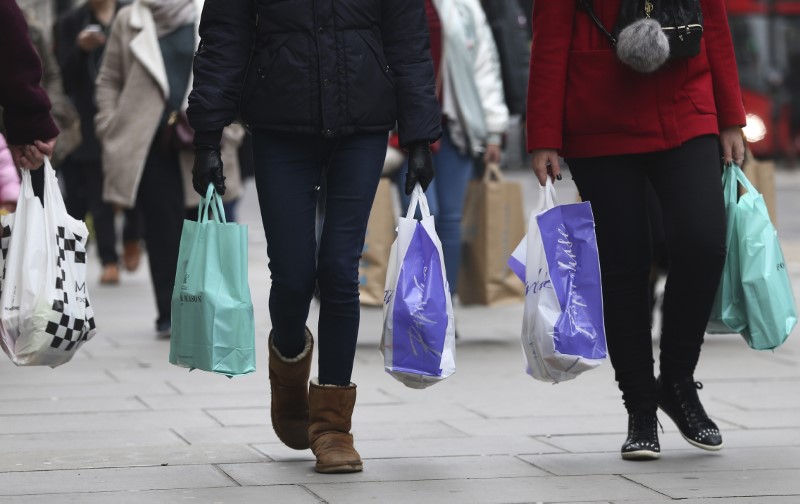LONDON (Reuters) - British consumer spending growth slowed to one of its weakest rates in the past three years last month, credit and debit card company Visa reported on Monday, as higher inflation and weak wage growth squeeze households' disposable income.
Visa said consumer spending rose by just 0.5 percent in April after adjusting for inflation, down from 1.0 percent in March. This was the lowest rate since January and well below a historic average of 1.4 percent.
"Consumers tightened their belts in the face of rising prices running up against stalling wage growth," Visa's managing director, Kevin Jenkins, said.
Sterling's fall since last year's Brexit vote has contributed to a rise in inflation that is running at its highest level since 2013.
Official figures for the first quarter of 2017 showed the sharpest fall in sales volumes since 2010, and Monday's data suggest that the broader measure of consumer spending - which includes things such as hotels and eating out - is flagging too.
Visa's figures are seasonally adjusted, so do not directly address the question of whether the weakness seen in some surveys is linked to the timing of Easter, which fell in April this year and in March in 2016.
Separately, an accountants' professional body said its members' morale had risen compared with late last year.
"Yet against this improved sentiment, businesses are not investing in staff and wages and may well be waiting to see what happens in the political arena," said Stephen Ibbotson, business director at the Institute of Chartered Accountants of England and Wales.

Prime Minister Theresa May last month called an early election for June 8, to strengthen her mandate ahead of nearly two years of negotiations over leaving the European Union.